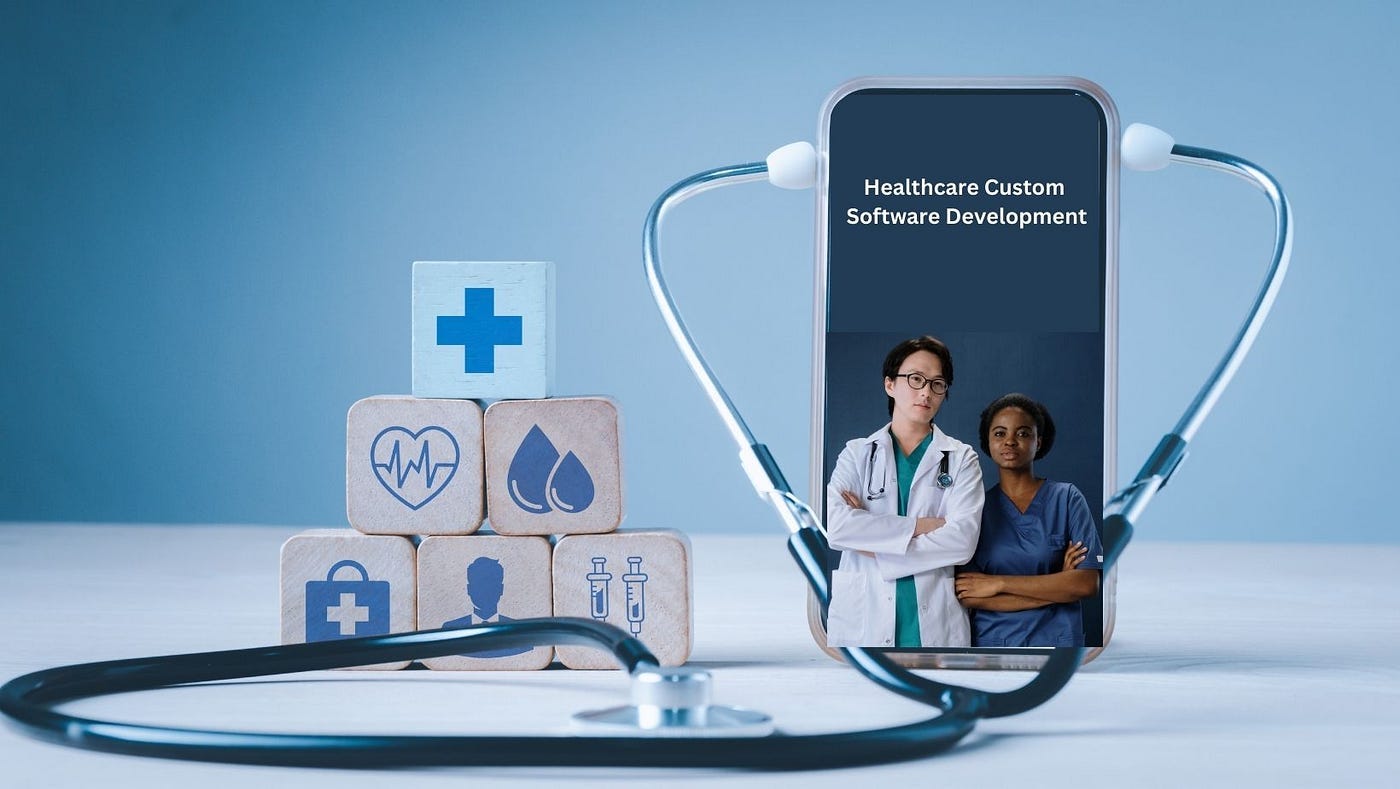The healthcare industry has witnessed a technological revolution in recent years, and mobile apps are at the forefront of this transformation. With the increasing demand for efficient and patient-centric care, healthcare mobile app development companies are playing a pivotal role in reshaping how healthcare services are delivered. Mobile apps have emerged as essential tools, offering convenience, real-time access, and personalized care. In this article, we will delve into the top benefits of mobile apps in the healthcare industry, exploring how they enhance patient care, streamline operations, and empower both patients and providers.
1. Enhanced Accessibility and Convenience
Mobile apps bring healthcare services directly to the fingertips of patients, eliminating geographical and logistical barriers. Through features such as telemedicine, patients can consult with doctors from the comfort of their homes, reducing the need for physical visits.
For patients in remote or underserved areas, these apps provide access to high-quality care that might otherwise be unavailable. Apps like appointment schedulers and medication reminders ensure that patients stay on top of their health without the need for constant visits to clinics or hospitals.
2. Improved Patient Engagement and Empowerment
Healthcare mobile apps encourage patients to take an active role in managing their health. Features like health trackers, fitness apps, and chronic disease management tools help patients monitor their conditions and maintain healthy lifestyles.
These apps provide users with valuable insights into their health metrics, such as blood pressure, heart rate, and glucose levels, fostering a sense of control and responsibility over their well-being. The ability to access medical records, lab results, and treatment plans through apps further empowers patients to make informed decisions about their healthcare.
3. Streamlined Healthcare Processes
Mobile apps are revolutionizing how healthcare providers manage their operations. From appointment scheduling to patient records management, mobile apps help reduce administrative burdens.
Healthcare providers can use these apps to access patient data in real-time, improving decision-making and enabling faster diagnoses. By integrating with hospital management systems, apps facilitate seamless coordination among various departments, leading to more efficient workflows.
4. Real-Time Communication Between Patients and Providers
One of the standout features of healthcare mobile apps is the ability to enable real-time communication. Patients can interact with healthcare providers through chat, voice, or video calls, ensuring prompt medical advice.
This immediate access to medical expertise is particularly beneficial during emergencies or when dealing with chronic conditions. Apps also allow for secure messaging, enabling patients to ask follow-up questions, seek clarifications, and receive updates on their treatment plans.
5. Personalized and Preventive Care
Healthcare apps leverage technologies like artificial intelligence (AI) and machine learning to offer personalized care recommendations. For example, fitness apps can create tailored workout and diet plans based on an individual’s health data and goals.
Additionally, predictive analytics in mobile apps can identify potential health risks and recommend preventive measures. By monitoring users’ health trends over time, apps can alert both patients and providers to early warning signs of diseases, enabling timely interventions.
6. Cost-Effective Solutions
For both patients and healthcare providers, mobile apps offer a cost-effective approach to healthcare. Patients save on travel expenses and consultation fees associated with in-person visits, while providers can reduce operational costs by automating administrative tasks.
Apps also minimize the need for expensive diagnostic procedures through regular monitoring and early detection. For healthcare mobile app development companies, the focus on creating scalable and affordable solutions ensures that these benefits reach a broader audience.
7. Improved Medication Management
Medication adherence is a critical challenge in healthcare. Mobile apps address this issue by sending reminders for medication schedules, dosages, and refill alerts.
Some apps also provide detailed information about medications, including side effects and interactions, helping patients better understand their treatments. This enhanced medication management reduces the risk of complications and improves overall health outcomes.
8. Secure and Centralized Health Data Management
Healthcare mobile apps serve as centralized platforms for storing and managing patient health data. By integrating with electronic health records (EHR) systems, these apps provide a secure and organized way to access medical histories, lab results, and imaging reports.
Data encryption and compliance with regulations like HIPAA ensure the security and confidentiality of sensitive information. This centralized approach not only simplifies data retrieval for providers but also enables better coordination of care.
9. Faster Emergency Response
During emergencies, mobile healthcare apps can save lives. Many apps are equipped with features like emergency contacts, location sharing, and access to medical histories, enabling first responders to act swiftly and effectively.
For instance, apps designed for individuals with chronic conditions, such as heart disease or epilepsy, can send alerts to family members or healthcare providers when abnormal readings are detected.
10. Support for Mental Health and Wellness
Mental health apps are gaining traction as they offer discreet and accessible support for individuals dealing with stress, anxiety, or depression. These apps provide resources like guided meditation, mood tracking, and virtual counseling sessions, making mental healthcare more approachable.
By eliminating stigma and providing 24/7 support, these apps contribute to improved mental well-being and a healthier society overall.
11. Global Reach and Scalability
Mobile apps break down geographical barriers, allowing healthcare providers to extend their services to a global audience. Telemedicine apps, for instance, enable doctors to consult with patients worldwide, broadening their reach and impact.
Healthcare mobile app development companiey focus on creating scalable solutions that cater to diverse demographics, ensuring inclusivity and accessibility. This global reach is particularly valuable in times of crises, such as pandemics, when healthcare resources are stretched thin.
12. Integration with Wearable Devices
The integration of mobile apps with wearable devices has added a new dimension to healthcare. Devices like smartwatches and fitness trackers sync with mobile apps to provide real-time health data, including steps taken, calories burned, and heart rate.
For patients with chronic conditions, wearables paired with apps enable continuous monitoring, ensuring timely medical interventions when needed. This synergy between wearables and apps enhances preventive care and supports healthier lifestyles.
13. Increased Patient Satisfaction and Retention
By offering convenience, transparency, and personalized care, healthcare mobile apps significantly enhance patient satisfaction. Satisfied patients are more likely to remain loyal to their healthcare providers, contributing to better retention rates.
Mobile apps also enable providers to gather patient feedback, helping them identify areas for improvement and deliver superior services.
Conclusion
Mobile apps are transforming the healthcare industry by bridging gaps between patients and providers, streamlining operations, and promoting preventive care. They empower patients to take charge of their health, enable real-time communication, and offer cost-effective solutions for a wide range of medical needs.
For healthcare providers, mobile apps improve efficiency, enhance patient satisfaction, and open new avenues for service delivery. As the demand for innovative healthcare solutions , healthcare mobile app development company will continue to play a crucial role in driving this digital transformation.
By embracing mobile app technology, the healthcare industry is not only improving outcomes but also making healthcare more accessible, affordable, and patient-centered. Whether it’s managing chronic diseases, addressing mental health, or responding to emergencies, mobile apps are proving to be indispensable tools in the quest for better healthcare.



